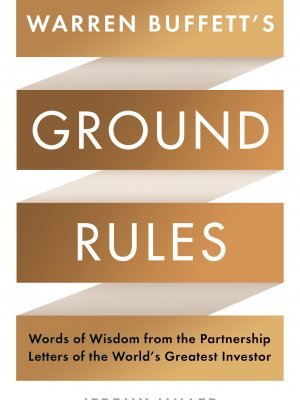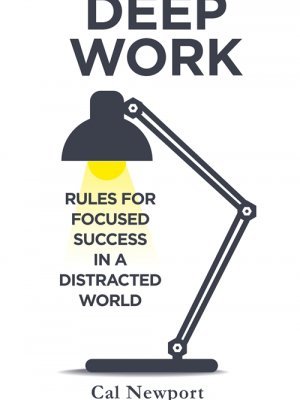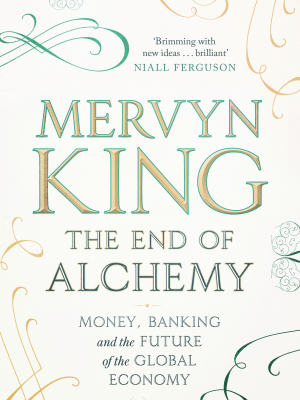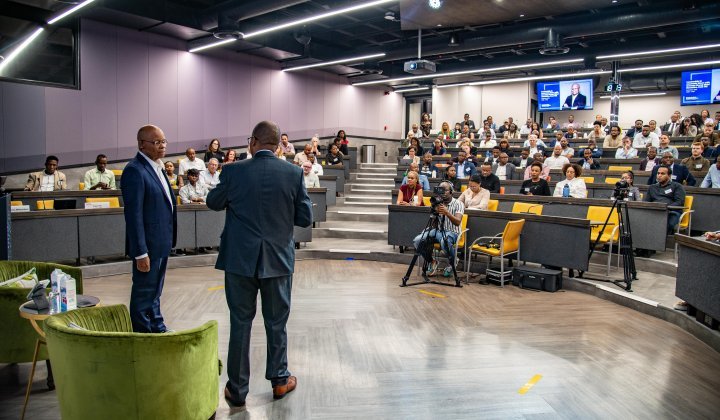The End of Alchemy - Mervyn King - Little Brown - R385.00
Former Bank of England Governor Mervyn King was one of a very small handful of key players who had to navigate their countries’ economies through the great financial crisis of 2007-08. However The End of Alchemy is not a ‘How I Saved the World’ type of book. It’s more about the fundamental causes of the crisis and what needs to change to prevent another one.
His central tenet is to reveal something that most ordinary folk don’t fully appreciate: when you deposit your salary into your bank account or add to your savings, your bank then takes that short-term money and lends it out, often in very complex long-term ways. This means that if every single one of the bank’s customers arrived to demand their money back at the same time on the same day, there is not the remotest chance of being paid. The banks bet on this not occurring, but it’s at the heart of what King calls the alchemy, or ‘sleight-of-hand’ which underpins the modern banking system.
As long as everyone has confidence in their bank, there’s no problem. But confidence did evaporate in the run-up to the crisis, and a number of banks - Lehman Brothers in the US, Northern Rock in the UK - went to the wall as a result.
A former Professor of Economics at both Cambridge and Harvard, King explains that many countries in the East, but also Germany, have been exporting and saving too much, while the US, UK and other European countries have not been exporting enough and consuming too much, creating trade deficits. The excess savings have been deposited into global financial markets and used to finance the trade deficits, placing strain on the balance sheets of both nations and banks. The availability of the excess cash has also pushed asset prices up and caused interest rates to keep falling and falling.
In turn, this created a chase for higher-yielding ‘products’, like the infamous collateralised debt obligations and sub-prime mortgages, instruments often so complex that even the originating banks didn’t fully understand them. And when confidence wobbled in 2007, and people began demanding their money back (in this case, banks from other banks), it quickly became apparent that a very great deal of alchemy had been practised, leading to the near-total collapse of the global banking system.
King introduces a critically important concept: radical uncertainty. When a crisis - any crisis - hits, we never see it coming, because we cannot predict the future. Nor can brilliant economists create models which claim to be able to do just that, pricing in every possible variation. If you think it’s a Black Swan, it’s not a Black Swan. In this instance, the experts knew something was wrong and assumed it would all be sorted out by dramatic shifts in exchange rates.
As important as King’s analysis is his prescription to keep the patient from falling sick again. He recommends that central banks become, in effect, pawnbrokers. A commercial bank would have to pledge a significant amount of assets with the central bank, in advance, to secure a line of cash credit that would guarantee its ability to repay short-term customers. It would be a form of insurance that, once in place, would bring an end to the risk of a run on any particular bank. Some central banks are already doing this, a good step, but much more still needs to change, according to King.
Mervyn King has written one of the most important books in many years on economics, finance and banking. Triumphantly, he’s also done it in plain English.
Deep Work - Cal Newport - Little Brown - R385.00
As you sit in the middle of your noisy cubicle farm, do you ever get to the end of the working day and wonder why you managed to achieve so little? Chances are that the phone kept ringing, you had to deal with apparently urgent emails and you were surrounded by other people’s conversations, most of which seemed to be about last night’s rugby or tomorrow’s baby shower.
Alternatively, do you ever close your office door and settle in for a period of concentrated, highly productive and personally satisfying work? Chances are that during that time, your phone doesn't ring, you aren’t bothered by emails and no-one ‘just popped in to say hi’.
Cal Newport, a Professor of Computer Science at Georgetown University, has studied this phenomenon, which he calls Deep Work, and his eponymous book presents compelling evidence that it is not only rare, but also extremely valuable to organisations and meaningful to individuals. Hence that feeling of immense satisfaction when it all goes right.
Having established that, he then lays out a set of rules to help you achieve the Deep Work state on a regular basis. It’s not a one-size fits all approach, either: you might choose to get up an hour or two earlier in the morning, or block off chunks in your calendar, and so on.
Deep Work is something many of us practise unconsciously - like that feeling of being ‘in the zone’ which enables you to nail a tough exam. Simply put, Newport’s excellent analysis of how it works, why it will almost certainly do great things for your career and how to get there more regularly, should be on everyone’s desk.
And that desk should be in a quiet room, not a cubicle farm.
Warren Buffett’s Ground Rules - Jeremy Miller - Profile Books - R380.00
The business section in many a bookstore often overflows with books about Buffett, the world’s most successful investor. What makes this one different is that it has been written with Buffett’s blessing and permission and it uses many of Buffett’s own words.
Buffett learnt his trade at the feet of value-investing guru Benjamin Graham, and before taking on the chairman’s role at Berkshire Hathaway, he spent 14 years running the Buffett Partnership Limited (BPL). Once or twice a year, he would send out a detailed Partnership Letter, setting out what had been achieved, accompanied by a why and how, and also the principles on which BPL was run - the Ground Rules.
New York-based investment analyst Jeremy Miller has, for the first time, brought all the Partnership Letters together and analysed them to reveal Buffett’s thinking and methods. As such, he has also assembled a detailed guide for anyone contemplating investing in the stock market, either at a professional or seriously committed amateur level. (Sorry, no room for amateurs here: if neither of those descriptions fit, don’t forget Buffett’s own will which recommends a bog-standard Index Tracker fund for the cash he’s leaving to his wife!)
Buffett’s celebrated dry wit sparkles through the book, as do things like his commitment to long-term investing and the value of compound interest. But is it any good? Well here’s what one critic had to say:
“Mr Miller has done a superb job of researching and dissecting the operation of Buffett Partnership Ltd., and of explaining how Berkshire’s culture has evolved from its BPL origin. If you are fascinated by investment theory and practice, you will enjoy this book.”
The words of….Warren Buffett himself. Good enough?







